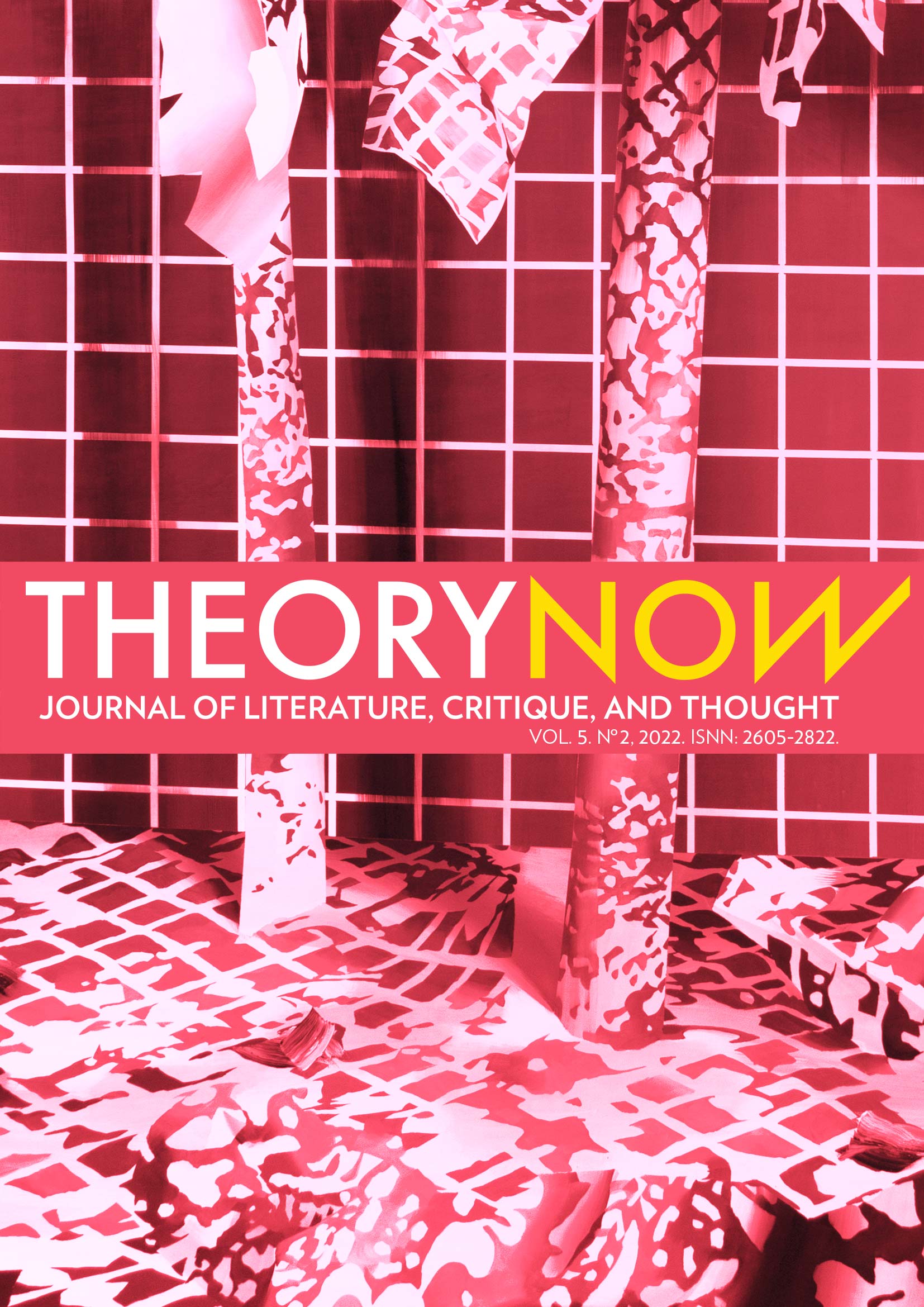Con motivo del Doctorado Honoris Causa de Terry Eagleton, Universidad de Santiago de Compostela, España
DOI:
https://doi.org/10.30827/tn.v5i2.25354Palabras clave:
Terry Eagleton, Teoría literaria marxista, ideología estética, teoría de la culturaResumen
Mi ensayo –en el sentido original, tentativo y exploratorio de la palabra– hace un balance retrospectivo de la obra de Terry Eagleton (en términos generales) de principios a mediados de su período, en su abrumadora variedad de temas. Me centro, naturalmente en los libros que más han influido en mi propio pensamiento o –como tantas veces– que me han llevado a direcciones nuevas y profundamente cambiantes. El enfoque es en parte anecdótico, como corresponde a un cruce recurrente de caminos que me ha mantenido leyendo su obra con la constante sensación de que, sean cuales sean los cambios en mi propio interés, su último libro o artículo probable- mente abrirá alguna línea de investigación nueva y pertinente. Nadie ha hecho más que Terry en los últimos cincuenta años para ampliar las posibilidades de intercambio creativo interdisciplinario que se abrieron a finales de la década de 1960 y que ahora están siendo cerradas con feroz celo por un Reino Unido en el gobierno en busca de la conformidad ideológica irreflexiva. En este homenaje me centraré principalmente en sus sucesivas aproximaciones a la cuestión de la ideología, tal y como figura no sólo en la teoría literaria y cultural, sino en la praxis cotidiana y en diversos contextos de la experiencia comunitaria.
Descargas
Citas
Adorno, Theodor. Aesthetic Theory [1970]. Minneapolis, University of Minnesota Press, 1997.
____. Minima Moralia [1951]. London, Verso, 1978.
Tony Bennett. “Really Useless 'Knowledge': A Political Critique of Aesthetics”, Thesis Eleven, no. 12, 1985, pp. 28-52.
Barthes, Roland. The Pleasure of the Text [1973]. New York, Hill and Wang, 1975.
Bourdieu, Pierre. Distinction: A Social Critique of the Judgement of Taste [1979]. Cambridge, MA., Harvard University Press, 1984.
Brooks, Peter. Body Work. Objects of Desire on Modern Narrative. Cambridge, MA., Harvard University Press, 1993.
Derrida, Jacques. Specters of Marx: The State of the Debt, the Work of Mourning and the New International. London, Psychology Press & Routledge, 1994.
Eagleton, Terry. Shakespeare and Society. Critical Studies in Shakespearean Drama. New York, Schocken Books, 1967.
____. Exiles and Emigrés. Studies in Modern Literature. New York, Schocken Books, 1970.
____. Criticism and Ideology. A Study in Marxist Literary Theory. London, Humanities Press, 1976.
____. Heathcliff and the Great Hunger. London, Verso, 1995.
____. Marxism and Literary Criticism. Oakland, University of California Press, 1976.
____. The Rape of Clarissa. Writing, Sexuality, and Class Struggle in Samuel Richardson. St. Paul, University of Minnesota Press, 1982.
____. The Function of Criticism: From the "Spectator" to Post-structuralism. London, Verso, 1984.
____. Literary Theory: An Introduction. St. Paul, University of Minnesota Press, 1983.
____. The Ideology of the Aesthetic. Oxford, Blackwell, 1990.
Empson, Steven. Some Versions of Pastoral: Literary Criticism. New York, A New Directions Paperbook, 1974.
____. Seven Types of Ambiguity [1935]. London, Chatto & Windus, 1947.
Leavis, Frank Raymond. Mass Civilisation and Minority Culture. Cambridge, The Minority Press, 1933.
____. The Critic as Anti-Philosopher. Athens (GE), University of Georgia Press, 1983.
Macherey, Pierre. A Theory of Literary Production [1966]. London, Routledge, 2006.
Regan, Stephen. The Eagleton Reader. Oxford, Wiley-Blackwell, 1998.
Warner, William Beatty. Reading Clarissa: The Struggles of Interpretation. New Haven, Yale University Press, 1979.
Descargas
Publicado
Cómo citar
Número
Sección
Licencia
Theory Now Journal of Literature, Critique, and Thought es una publicación de acceso abierto e inmediato totalmente gratuita, tanto para lectorxs como para autorxs. Lxs autorxs no pagan ningún tipo de tasa por el proceso editorial de sus artículos. Permitimos la lectura, descarga, copia, distribución, impresión, búsqueda, enlace o reutilización con fines no comerciales de todos los trabajos publicados, siempre que se citen la autoría, la revista y el órgano editor. Todo material intelectual publicado en esta revista se encuentra protegido con una licencia de Creative Commons Reconocimiento-NoComercial .
Recomendamos encarecidamente la difusión de los artículos en redes sociales (Facebook, Twitter, LinkedIn, etc.) y científicas (ResearchGate, Academia.edu, etc.), repositorios institucionales universitarios y otros repositorios públicos, blogs y webs personales o institucionales, Google Scholar, ORCID, ResearchID, ScopusID, etc. En cualquier caso, la propiedad intelectual de los artículos y los posibles derechos económicos derivados de ellos son exclusivamente de sus autores.













